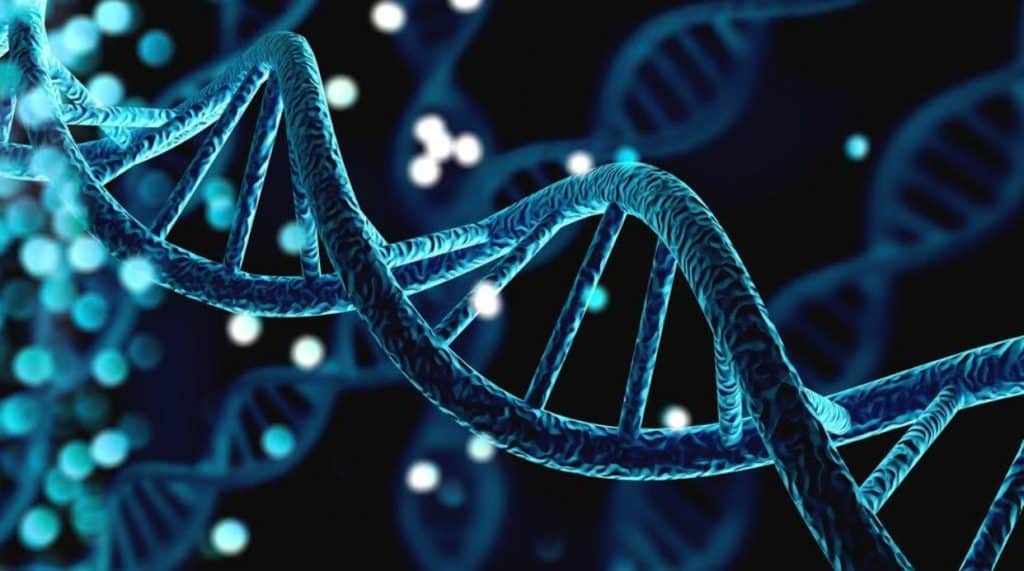Infertility is a problem that can prove to be challenging for many people. If you’re dealing with infertility, don’t worry, you’re not alone. Infertility is more common than you might think and approximately 10-15% of couples in the United States experience it. Before we dive right into the post, we must understand what infertility is and its relationship with genetics.
Infertility in its simplest terms refers to the inability to get pregnant after one year of trying or more. You may be wondering what the cause of your infertility is and whether your family history can affect fertility. The truth is, infertility is a complex condition and, in most cases, it is not due to a known inherited cause. There’s no infertility gene, therefore, just because your family has a history of infertility challenges doesn’t mean that you will too.
This post provides insight into the relevance of genetics in infertility challenges.
Keep reading!

What is Infertility?
A couple is considered infertile if they’ve been trying but failing to get pregnant within one year or more of regular unprotected sex.
If the woman is older than 35, the amount of time trying drops to 6 months for infertility to be diagnosed. It is important to note that infertility does not include miscarriages or being unable to carry a baby to childbirth.
Types of Infertility
There are primarily two types of infertility:
- Primary infertility: This happens when a woman who has never been pregnant fails to do so after a year of regular unprotected sex.
- Secondary: this occurs when a woman who has had at least one successful pregnancy finds it hard to get pregnant again.
Possible Causes Of Infertility in Females
Several health conditions can contribute to fertility challenges in women. Some of these conditions can be inherited because they have a genetic component, hence, they explain the link between genetics and infertility.
The next part of this post explores the different conditions which may contribute to infertility in women.
1. Endometriosis
Endometriosis is regarded as one of the leading causes of infertility in women. It occurs when the tissue normally found lining the inside of the womb develops on the outside of the womb, including the ovaries and fallopian tubes. This can result in inflammation and scarring, which consequently lowers fertility. Endometriosis does not have a known cause but is believed to have a genetic component and may be passed down within families.
2. Polycystic Ovarian Syndrome (PCOS)
This is a syndrome that causes a hormonal imbalance that can interrupt the normal activity of your ovaries. When this happens, the implication is that your ovulation can become irregular, making it harder to conceive. PCOS can be hereditary, but can also be a result of diet or lifestyle changes that have effects on ovulation.
Read this post on Polycystic Ovarian Syndrome (PCOS) to learn more

3. Turner Syndrome
Turner syndrome is a genetic disorder that sometimes can be passed down or inherited from one or both of your biological parents. A woman with Turner syndrome is born with an altered X chromosome or only one X chromosome. This can cause the failure of the ovaries to develop properly. Also, Turner syndrome can lead to primary ovarian insufficiency (POI), a condition that makes the ovaries stop working before 40 years old.
4. Kallman syndrome
This is another genetic condition that can be caused by changes in several different genes. In Kallman syndrome, the brain makes low levels of gonadotropin-releasing hormone(GnRH). GnRH tells the ovaries to make estrogen and progesterone which are the key female reproductive hormones. Consequently, low GnRH levels affect fertility.

Possible Causes of Infertility in Men
Generally, it is believed that male infertility isn’t inherited, and that lifestyle and environment are more important factors to take into consideration. However, certain genetic conditions can reduce male fertility. The following are some notable examples of such conditions:
1. Kallman Syndrome
Like in women, this syndrome leads to low production of GnRH which is important for the production of testosterone. Testosterone is necessary for sperm development so its low levels can cause infertility.
2. Y-chromosome deletions
The Y-chromosome is typically only present in men at birth and contains many of the genes responsible for developing male sexual characteristics. Deletions refer to an area or areas of a gene that is missing. Deletions on the Y-chromosome can affect sperm production which may manifest in these ways:
- Irregularly shaped sperms
- Ineffective sperm motility
- Low numbers of sperm
- No sperm at all
3. Klinefelter syndrome
This is a genetic disorder in which a male has an additional X chromosome. It means that they have two X chromosomes and one Y chromosome. Klinefelter syndrome is the most common genetic cause of male infertility and its effects interfere with sperm production. In most cases, males born with Klinefelter syndrome usually do not make any sperm at all.
Conclusion
Infertility can be due to several different conditions. Sometimes, these conditions may have genetic components. However, infertility is not a hereditary trait. If you’re having trouble getting pregnant after 1 year of trying, speak to a doctor to find out what the problem is.
Upon medical evaluation, if you are diagnosed with a genetic condition that affects fertility, your doctor will recommend potential treatment options. This may feel overwhelming or frustrating but it is important to follow all treatment plans. The chances of starting a family after being diagnosed with infertility are pretty good. There are different methods available to address fertility challenges.
Medications, surgery, intrauterine insemination (IUI), or any assisted reproductive technology such as in vitro fertilization (IVF) can improve your chances of getting pregnant.

